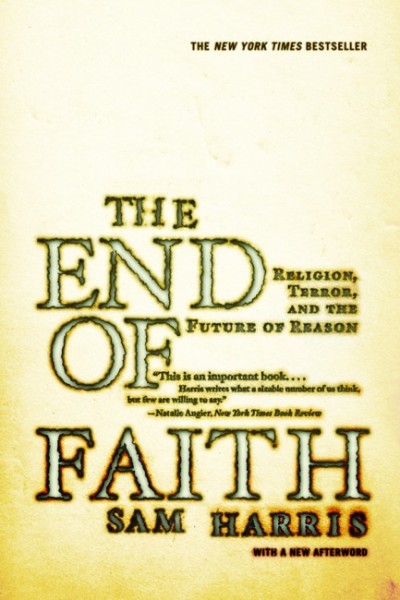Sam Harris Looks Back on 'New Atheist' Movement, Insists Not All Religions Are Equally as Bad

Sam Harris, author of the book The End of Faith that was published 10 years ago, has been credited for starting the "new atheist" movement. Reflecting back on his work, Harris downplays the impact the book might have had on the growth of atheism in national surveys. He also contends that not all religions are equally as bad, by singling out the dangers of radical Islam.
"I certainly see the impact that The End of Faith had on publishing — as you indicated, the book initiated the 'new atheist' run of bestsellers. But I don't know what effect these books have had on the wider culture. The poll numbers seem to be inching in our direction — with the percentage of Americans claiming 'no affiliation' with religion, or even declaring their 'atheism' outright, slowly growing," Harris said in an email to "The Friendly Atheist" website founder Hemant Mehta, posted on Monday.
"But whether or not my book had anything to do with this trend, I don't know. I can say that I've heard from tens of thousands of readers personally, and many of them have said that I changed their views about God, faith, etc. But there may be just as many people I haven't heard from whose faith was redoubled by my failure to address the finer points of 'sophisticated' theology."
In the email he also discussed some of the problems of 'generic atheism' that assumes that all religions are equally as bad.
"This is not only foolish, it's increasingly dangerous. Anyone who is just as concerned about the Anglican Communion as he is about ISIS, al-Qaeda, and rest of the jihadist menace needs to have his head examined," the author stated.
ISIS or the Islamic State, as the militant group calls itself, has taken large parts of territory in Iraq and Syria, waging war on the central governments and forcing hundreds of thousands of people to flee their homes, including many Christians who have been killed or threatened with death.
In his blog post, Mehta noted that some famous books that have followed The End of Faith include, Daniel Dennett's Breaking the Spell, Richard Dawkins' The God Delusion, Ayaan Hirsi Ali's Infidel and Christopher Hitchens' God is Not Great.
He also pointed to polls such as a 2012 survey by Pew Research which showed that just under 20 percent of U.S. adults now consider themselves religiously unaffiliated, and as much as a third of adults under 30.
Mehta also said that it is difficult to say how much such a trend has been influenced by the new atheist books, but argued that "it's hard to understate their impact on the public discourse surrounding religion."
Harris, who has also published books such as, Letter to a Christian Nation and The Moral Landscape: How Science Can Determine Human Values, is set to introduce his latest work later in 2014, titled Waking Up: A Guide to Spirituality Without Religion.
In his latest book, Harris makes note of the growing number of people in the U.S. who do not identify with a religious faith, but also looks for "important truths" in the experiences of religious figures throughout history.





















